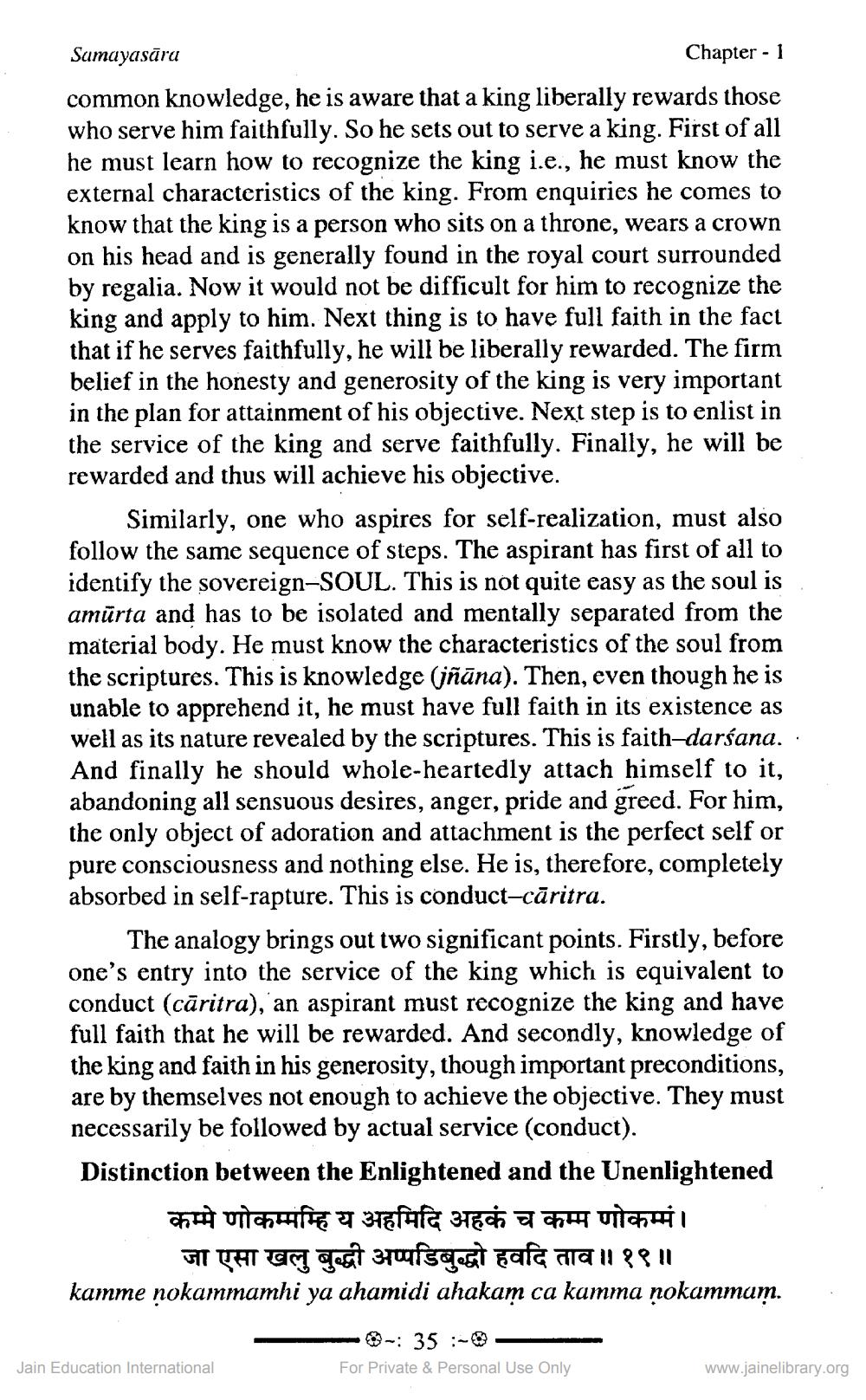________________
Samayasāra
Chapter - 1
common knowledge, he is aware that a king liberally rewards those who serve him faithfully. So he sets out to serve a king. First of all he must learn how to recognize the king i.e., he must know the external characteristics of the king. From enquiries he comes to know that the king is a person who sits on a throne, wears a crown on his head and is generally found in the royal court surrounded by regalia. Now it would not be difficult for him to recognize the king and apply to him. Next thing is to have full faith in the fact that if he serves faithfully, he will be liberally rewarded. The firm belief in the honesty and generosity of the king is very important in the plan for attainment of his objective. Next step is to enlist in the service of the king and serve faithfully. Finally, he will be rewarded and thus will achieve his objective.
Similarly, one who aspires for self-realization, must also follow the same sequence of steps. The aspirant has first of all to identify the sovereign-SOUL. This is not quite easy as the soul is amurta and has to be isolated and mentally separated from the material body. He must know the characteristics of the soul from the scriptures. This is knowledge (jñāna). Then, even though he is unable to apprehend it, he must have full faith in its existence as well as its nature revealed by the scriptures. This is faith-darśana. And finally he should whole-heartedly attach himself to it, abandoning all sensuous desires, anger, pride and greed. For him, the only object of adoration and attachment is the perfect self or pure consciousness and nothing else. He is, therefore, completely absorbed in self-rapture. This is conduct-cāritra.
The analogy brings out two significant points. Firstly, before one's entry into the service of the king which is equivalent to conduct (cāritra), an aspirant must recognize the king and have full faith that he will be rewarded. And secondly, knowledge of the king and faith in his generosity, though important preconditions, are by themselves not enough to achieve the objective. They must necessarily be followed by actual service (conduct). Distinction between the Enlightened and the Unenlightened
कम्मे णोकम्मम्हि य अहमिदि अहकं च कम्म णोकम्म।
जा एसा खलु बुद्धी अप्पडिबुद्धो हवदि ताव॥१९॥ kamme nokammamhi ya ahamidi ahakam ca kamma nokammum.
- -: 35 :-* - For Private & Personal Use Only
www.jainelibrary.org
Jain Education International




